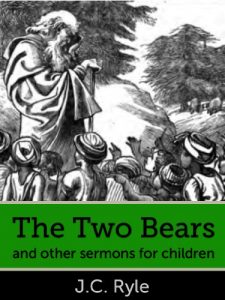"There are subjects about which it is well to look behind us. There are matters in which a knowledge of the past may teach us wisdom for the present and the future. The history of religion is pre-eminently such a subject and matter. Steam, electricity, railways, and gas, have made a wonderful difference in the temporal condition of mankind in the last two hundred years. But all this time the Bible and the hearts of men have remained unaltered. That which men did and thought in religious matters two hundred years ago, they are capable of doing and thinking again. What they thought and did in England in the seventeenth century it is well to know. And just as there are subjects about which it is wise to look behind us, so also there are times long gone by which deserve our special attention. There are times when the character of a nation receives an indelible impression from events which take place in a single generation. There have been times when the dearest privileges of a people have been brought to the birth, and called into vigorous existence, through the desperate agony of civil war and religious strife. Such, I take leave to say, were the times of which I am about to speak in this biography.
To no times are Englishmen so deeply indebted for their civil and religious liberty as the times in which Baxter lived. To no body of men do they owe such an unpaid debt of gratitude as they do to that noble host of which Baxter was a standard bearer: I mean the Puritans. To no man among the Puritans are the lovers of religious freedom under such large obligations as they are to Richard Baxter."
To no times are Englishmen so deeply indebted for their civil and religious liberty as the times in which Baxter lived. To no body of men do they owe such an unpaid debt of gratitude as they do to that noble host of which Baxter was a standard bearer: I mean the Puritans. To no man among the Puritans are the lovers of religious freedom under such large obligations as they are to Richard Baxter."












